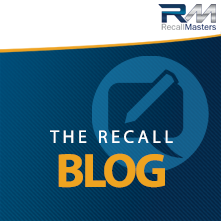When States Fight Back

When States Fight Back
I’ve written a lot about recall awareness and how dealers can position themselves to be champions in their communities by treating recall customers differently — applauding those who simply won’t sell a used vehicle with an open safety recall. I’ve also warned several times in past blogs that the NHTSA is not happy with recall compliance rates and that, eventually, legislators would be taking action to resolve the matter.
Well, it looks like some state legislatures are now getting into the recall muck, starting with New York.
A recent article in Automotive News reported that the New York Attorney General reached legal settlements with 104 dealerships that sold used cars with open recalls without disclosing this to their customers prior to the sale.
While it may be a financial burden to sit on used vehicles with open recalls for months awaiting a repair, if the outcome of the settlement in New York spreads to other states, and/or is adopted by them, selling these used vehicles is going to become a lot harder.
Here are the consequences these 104 dealerships agreed to in the settlement:
- Dealers must include enough information about their vehicles for sale online so that a consumer can check websites and information providers to identify if the vehicle has any open recalls.
- If the dealer advertises “in print or other media,” it must disclose in the ad that the vehicle has open recalls.
- Dealers must place decals on the windows of vehicles for sale on their lot which indicate the existence of any open recall and provide directions to consumers on how to check the vehicle’s status online.
- TWO DAYS BEFORE the dealership sells a car with an open safety recall, it must provide the consumer with a written recall status report and obtain “written acknowledgment” from the consumer.
- Dealers must notify any customer who purchased a vehicle with a still unrepaired safety recall from January 2016 to present. Franchised dealers also need to pay for up to 5 days in a loaner car should the repair take longer than a day.
Think about these rules for a minute and let them sink in — they may startle you. Remember – dealers AGREED to these rules!
How much harder will it be to sell a used vehicle with an open recall and gain the customer’s confidence in the quality of used vehicles being sold? Without a doubt, used vehicles with open recalls will be much harder to sell to consumers. However, with the dealer’s reputation at stake, purposefully misleading consumers by not fully disclosing those open recalls is far more damaging to the long-term sustainability of a dealership. Trust is difficult to win back once lost.
Imagine reading a newspaper ad full of used car disclaimers with open recalls. What about having to insert the fact vehicles have open recalls into your radio ads? Or what will it be like simply watching your customers’ faces when they walk onto your lot and see recall window decal notifications?
Even if the customer is fine with all of this (which many won’t be), you still can’t sell them a car they want RIGHT NOW for TWO DAYS! I’m pretty sure that, even if you are adhering to all of the notification rules, the one thing that will hurt sales the most immediately is forcing the customer to wait two days. If they leave, we all know they are going to visit another dealership and probably buy a car there.
These rules, in all practicality, force these 104 dealerships to essentially stop selling used cars with open recalls. Or, at the very minimum, cease advertising them on ANY MEDIUM (which includes the Internet).
The writing is on the wall – legislation on both state and federal levels is coming. If the rules the Attorney General of New York got these dealerships to agree to are any indication of what is to come, you should be prepared for an increasingly difficult road in future sales of used cars with open safety recalls. The time to take a proactive stance on recall management is now. Don’t wait for laws to be passed before your systems and staff are ready to effectively manage open recalls.

